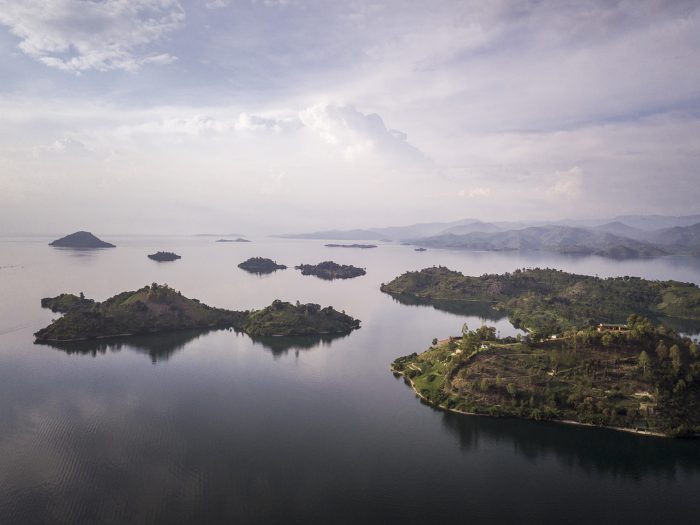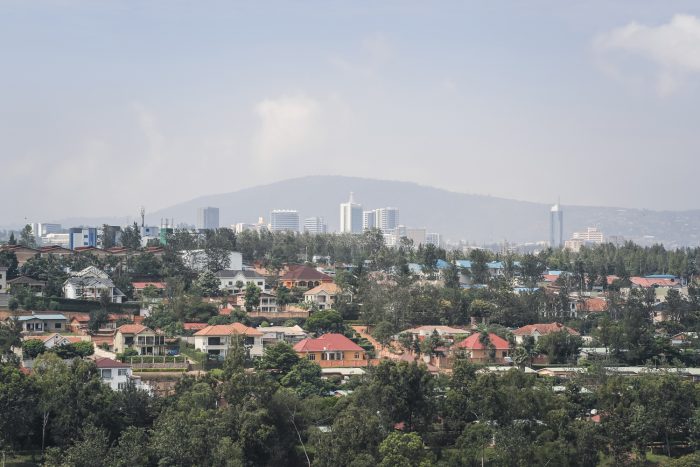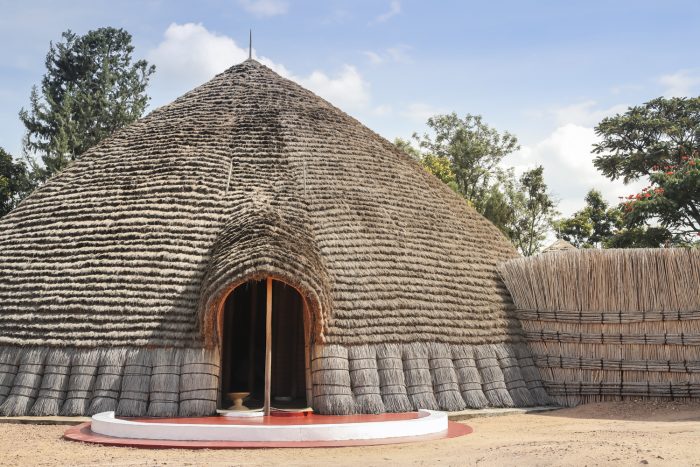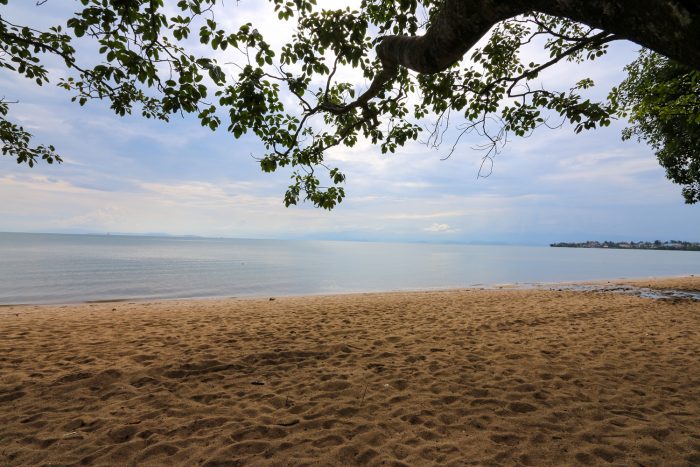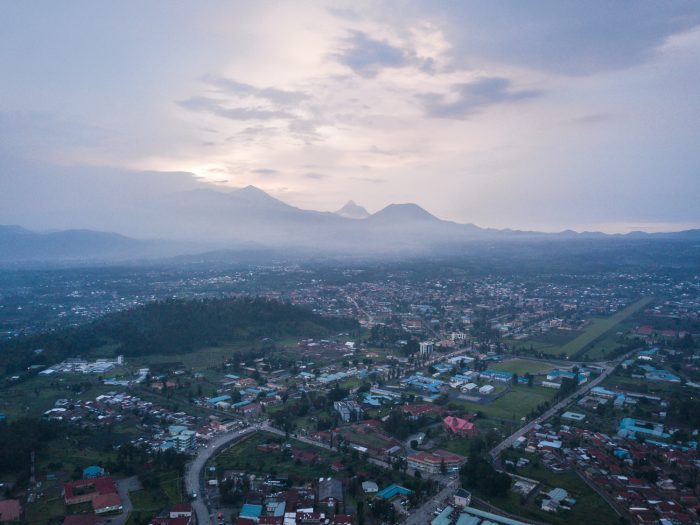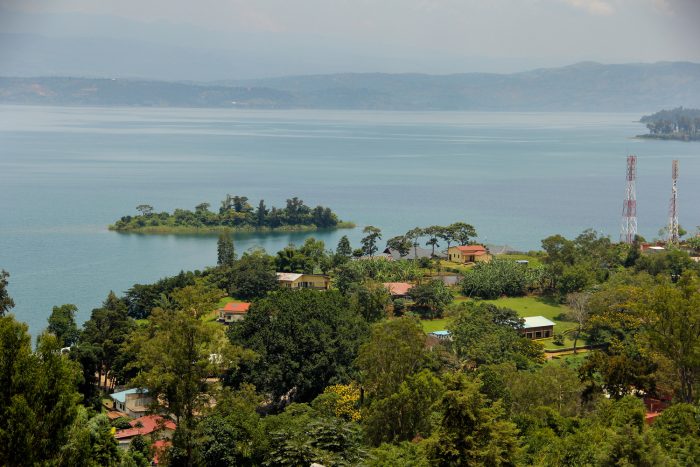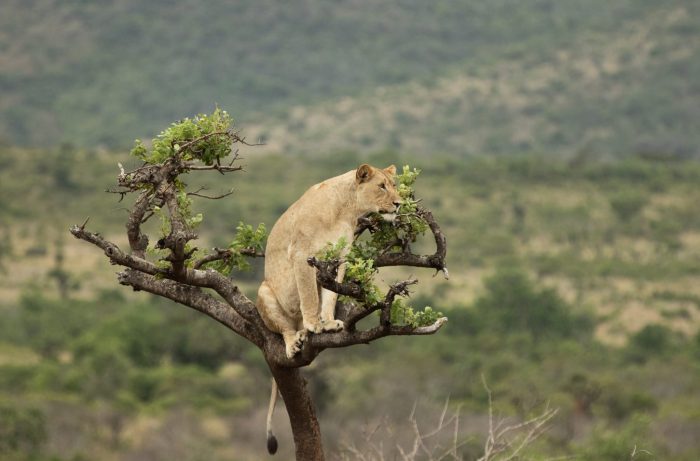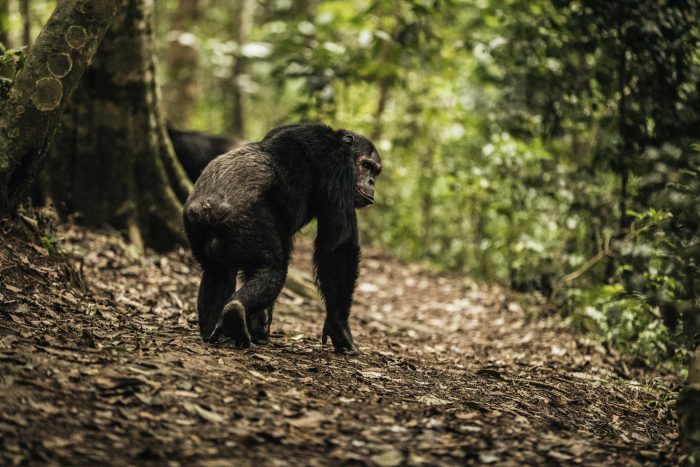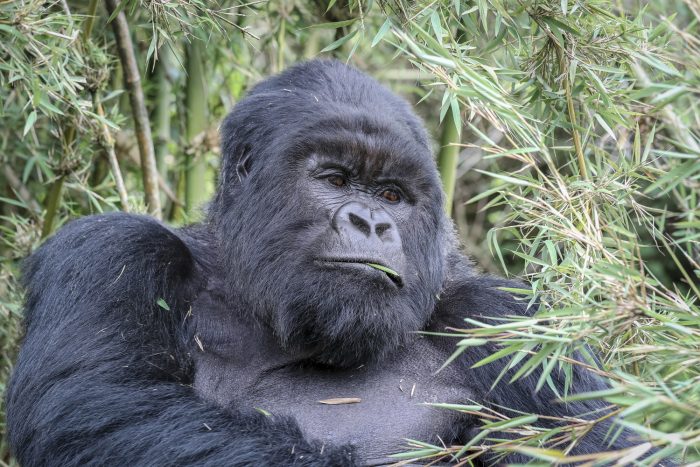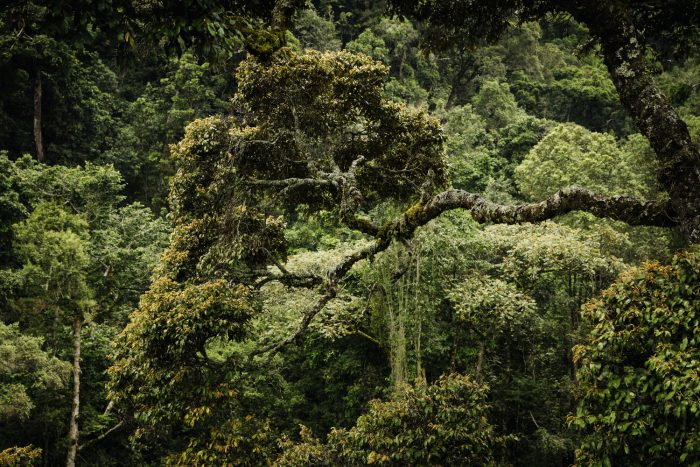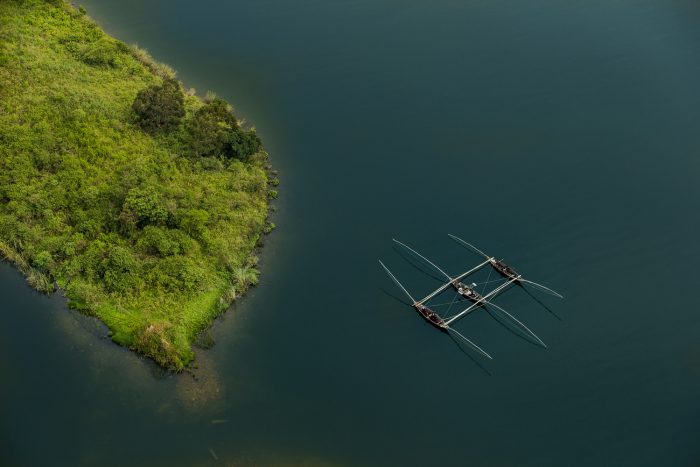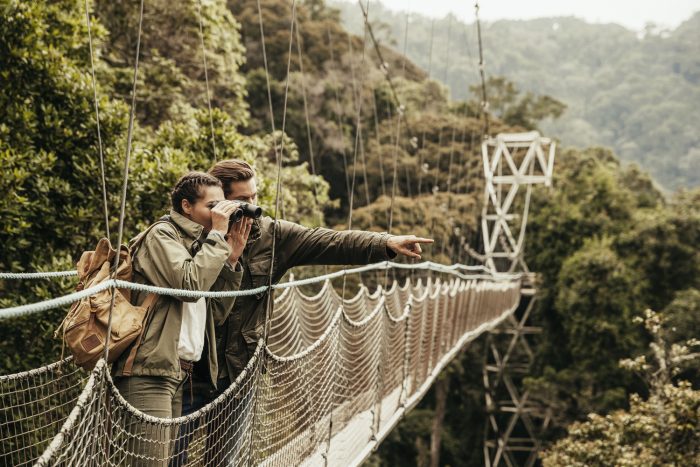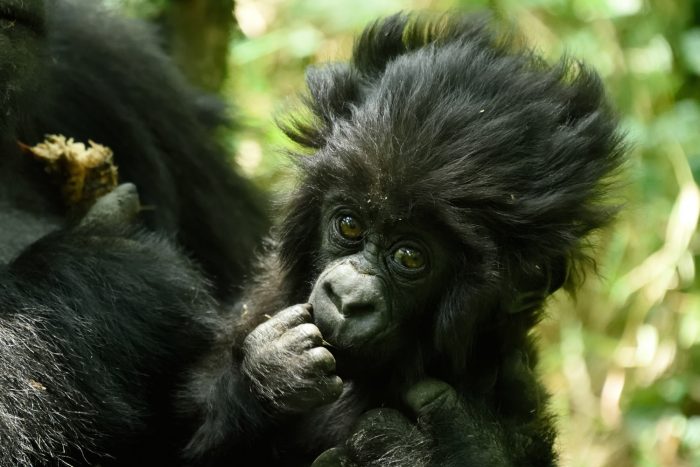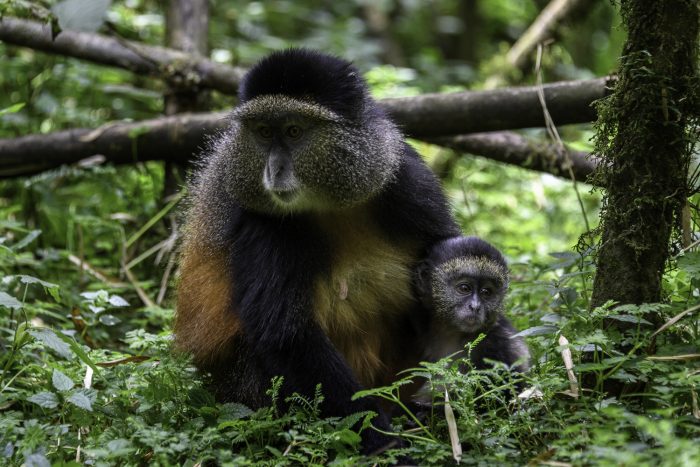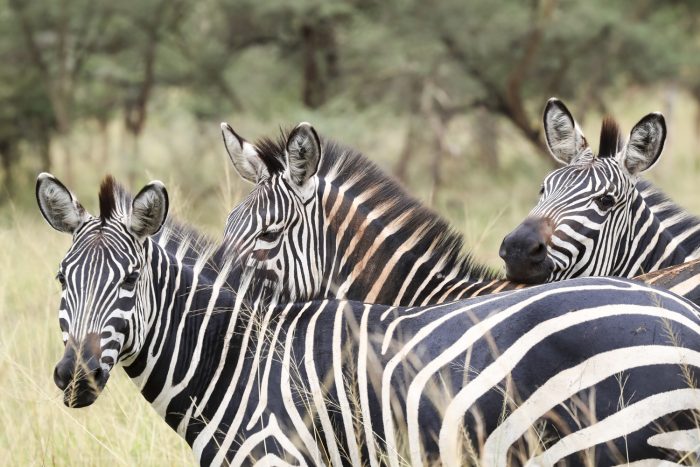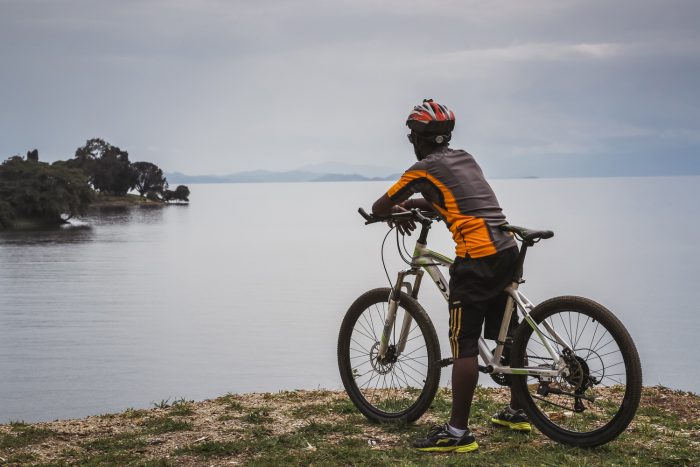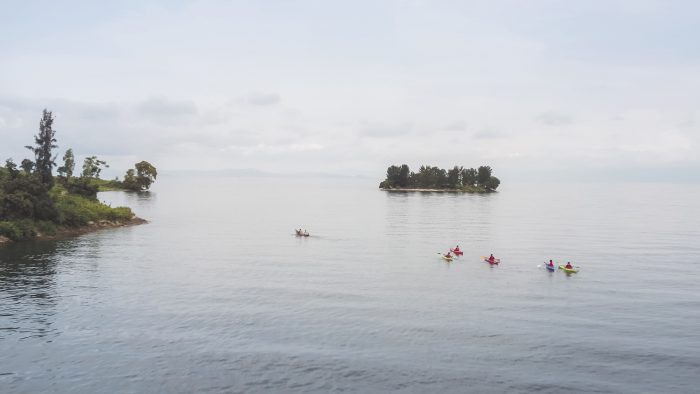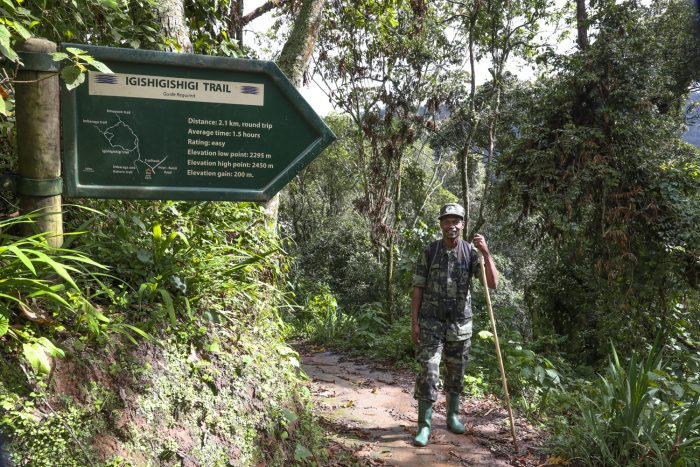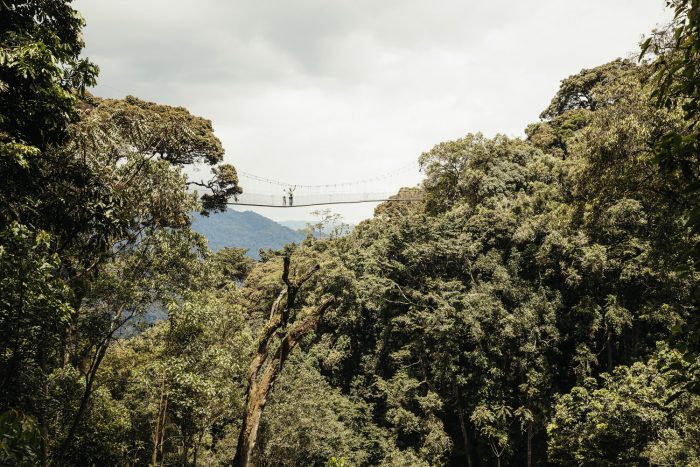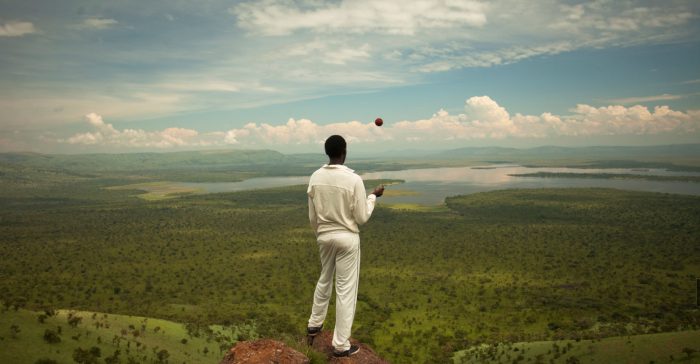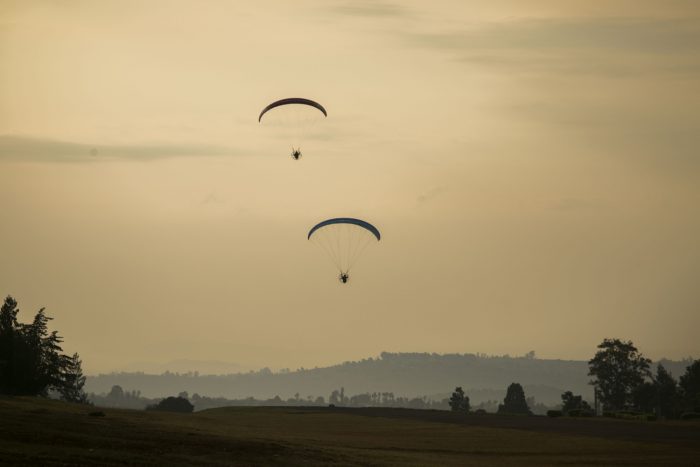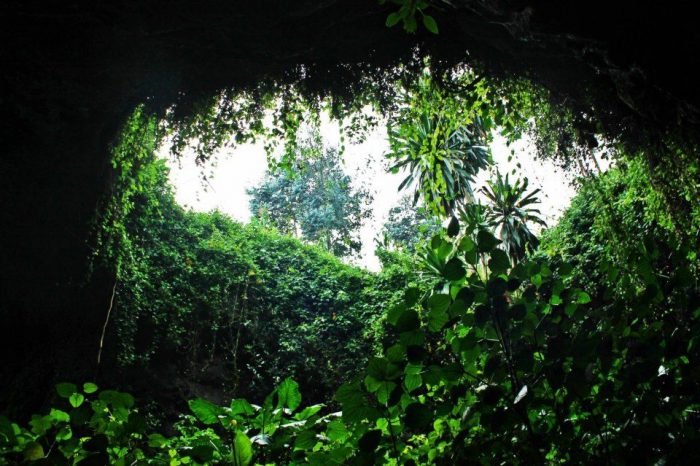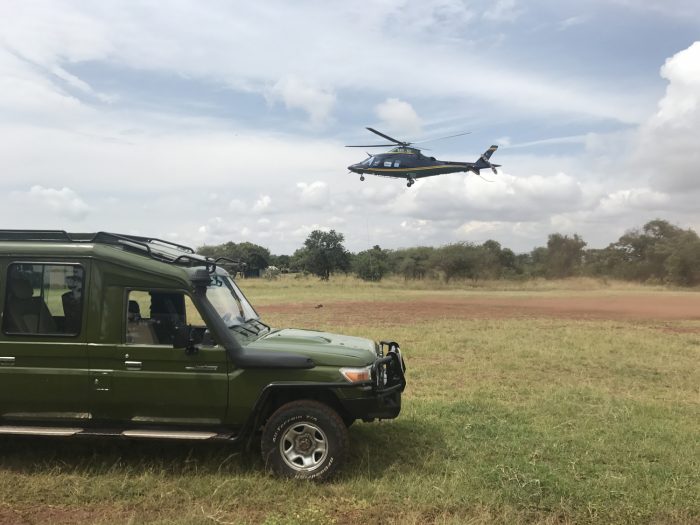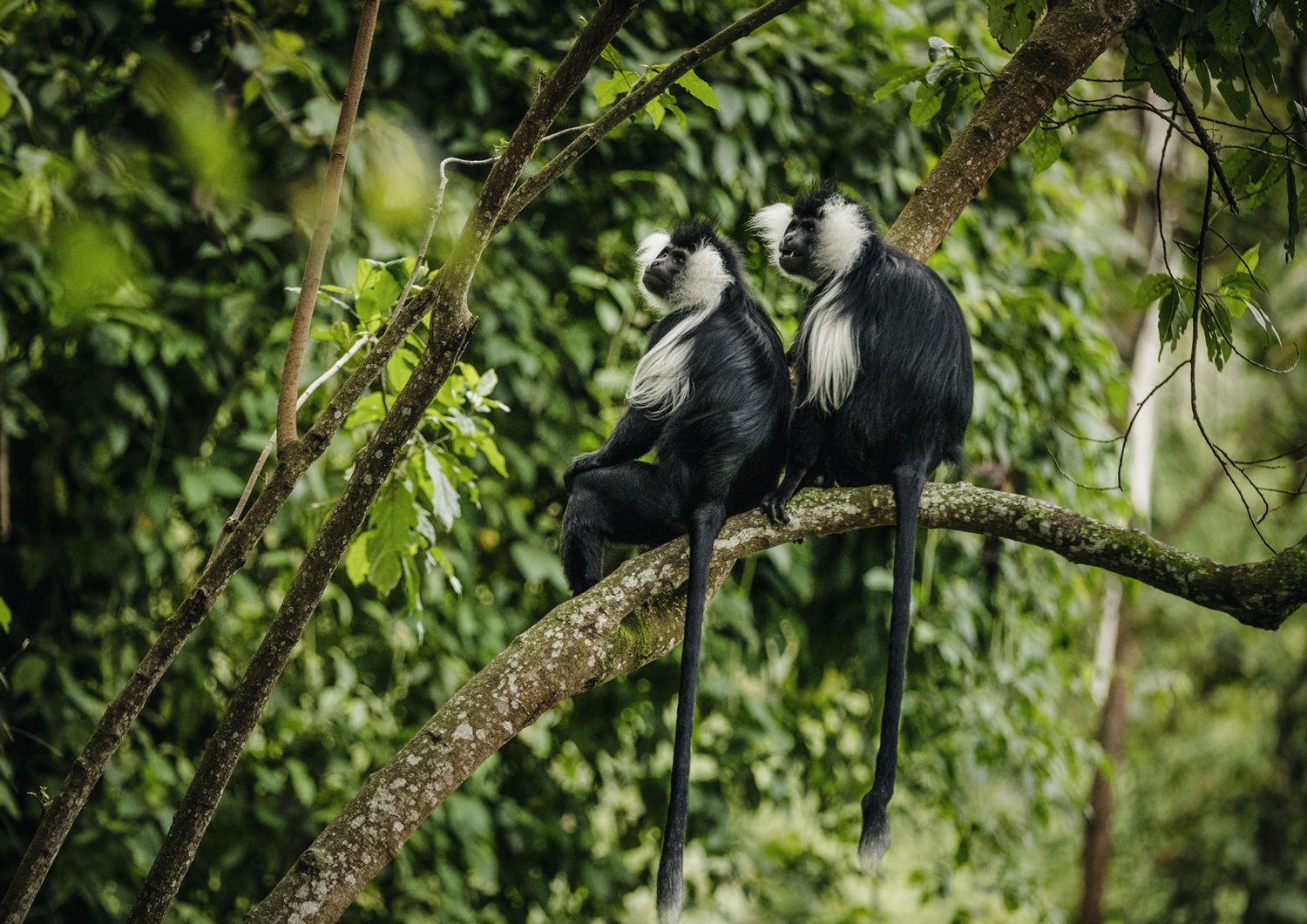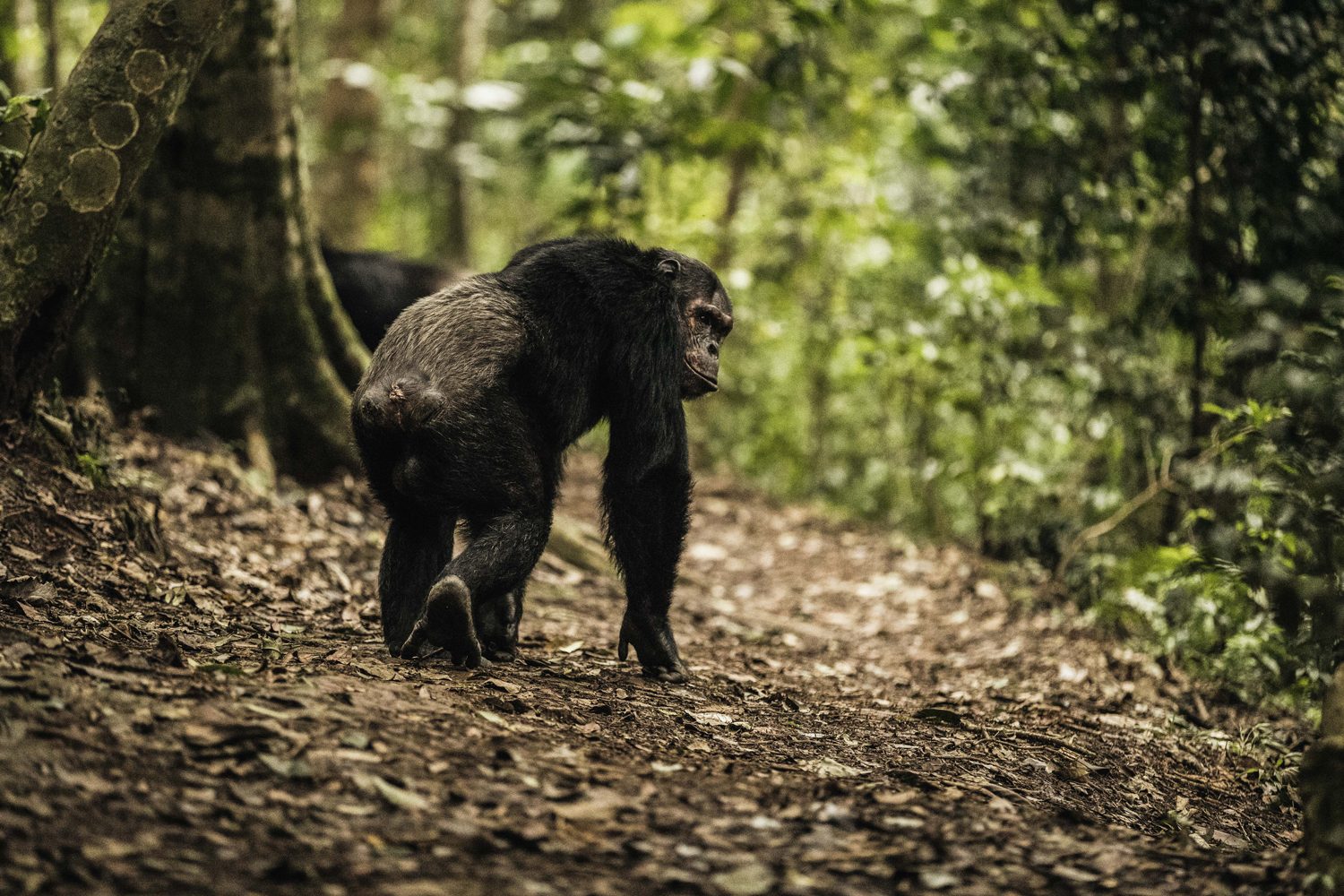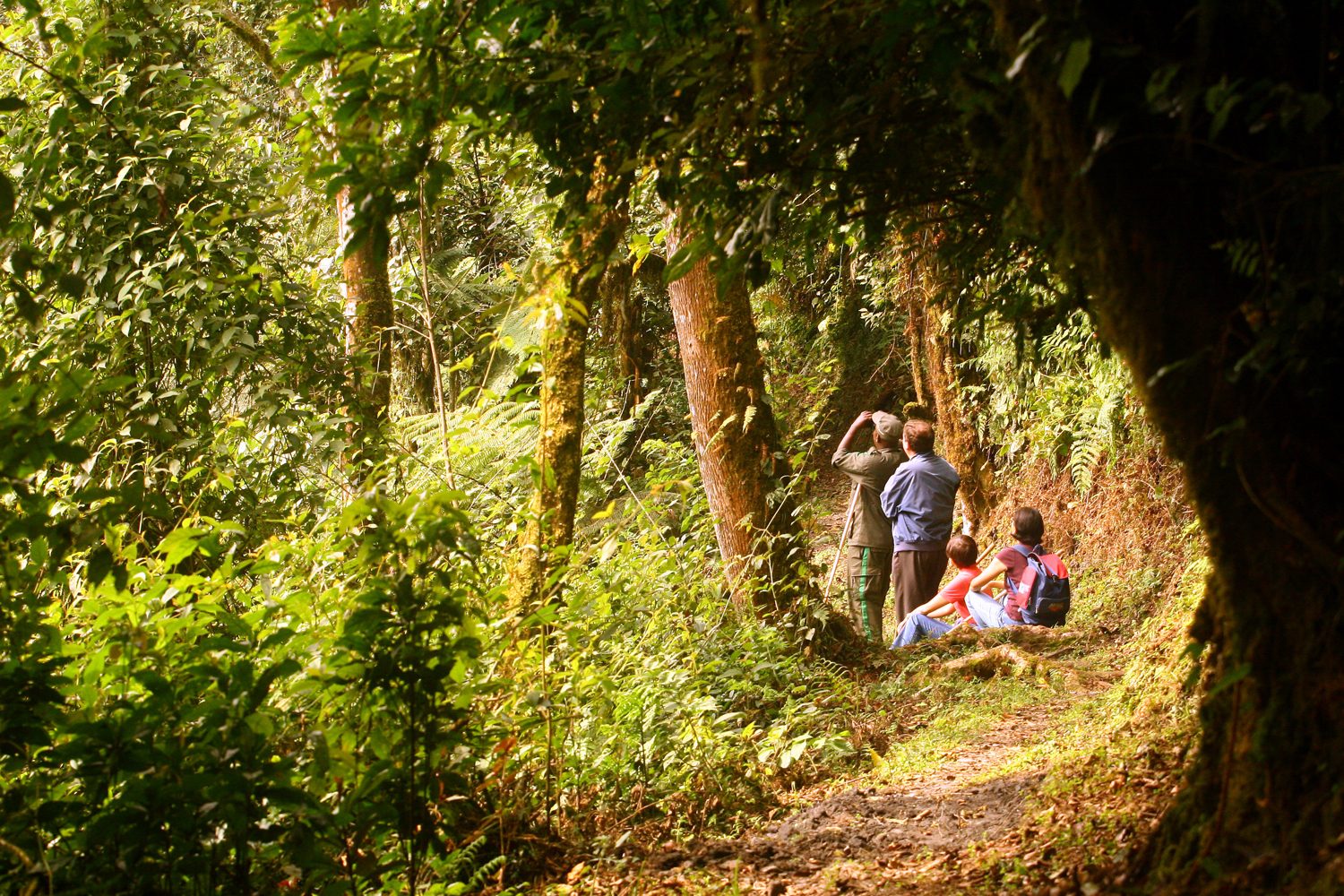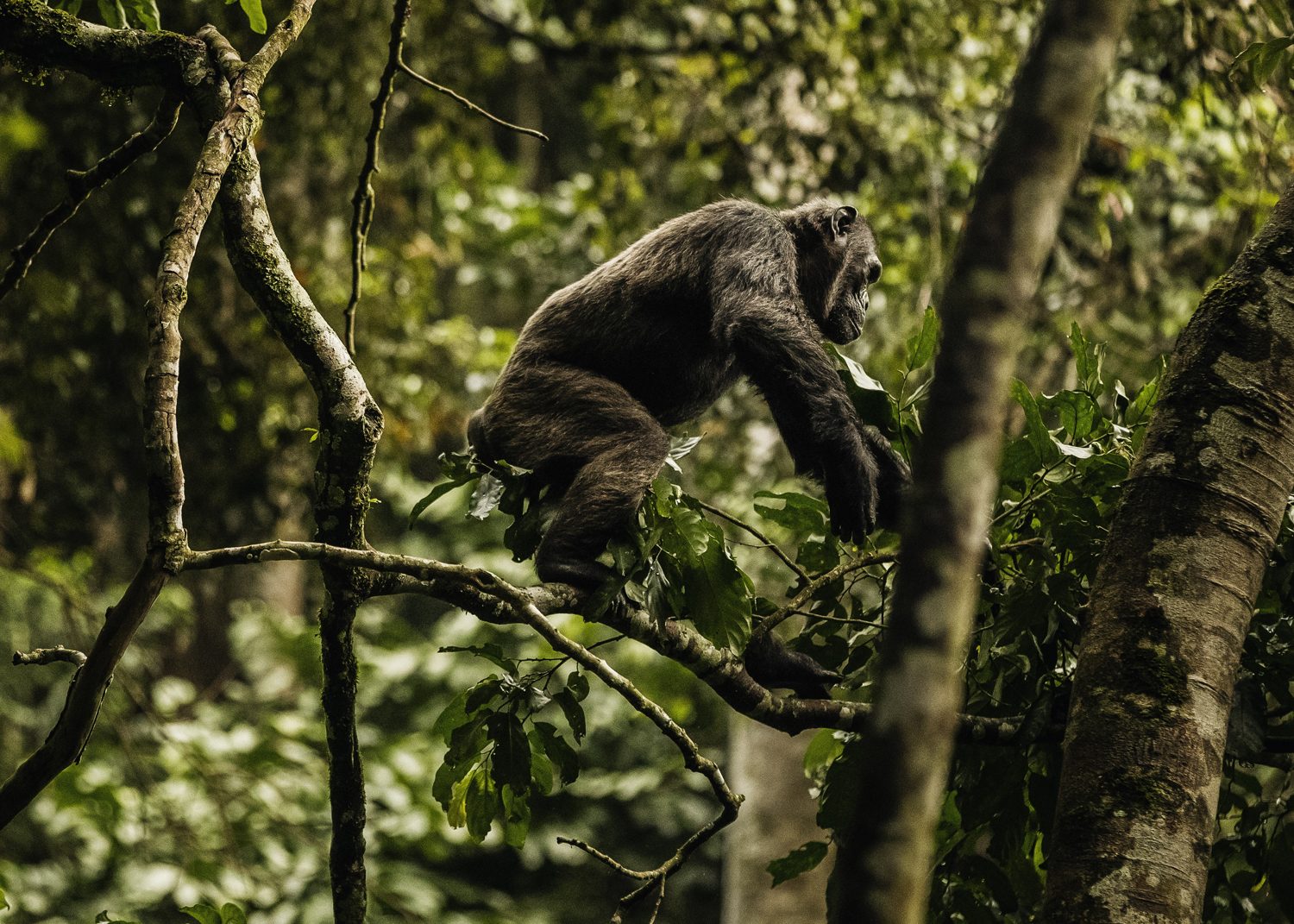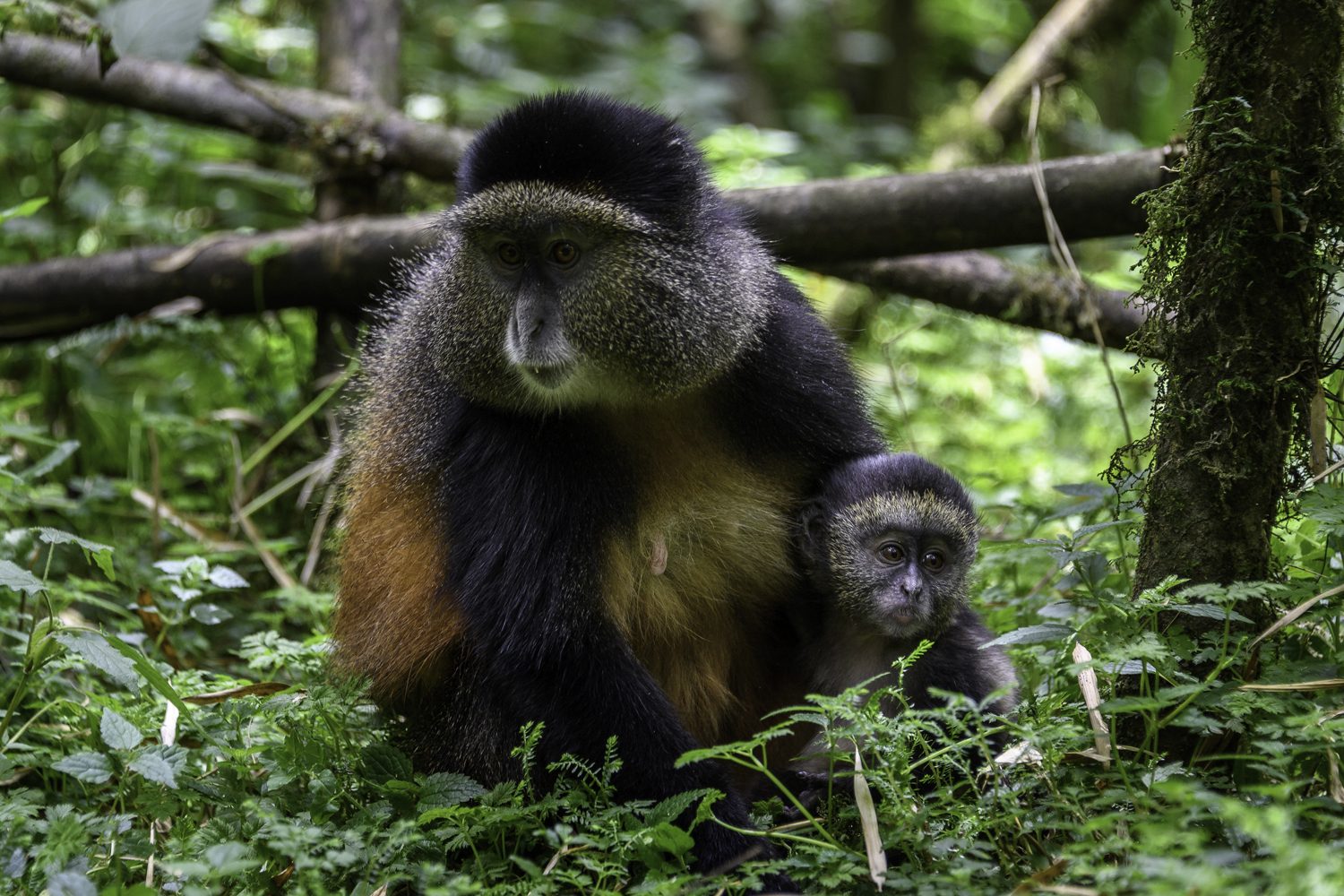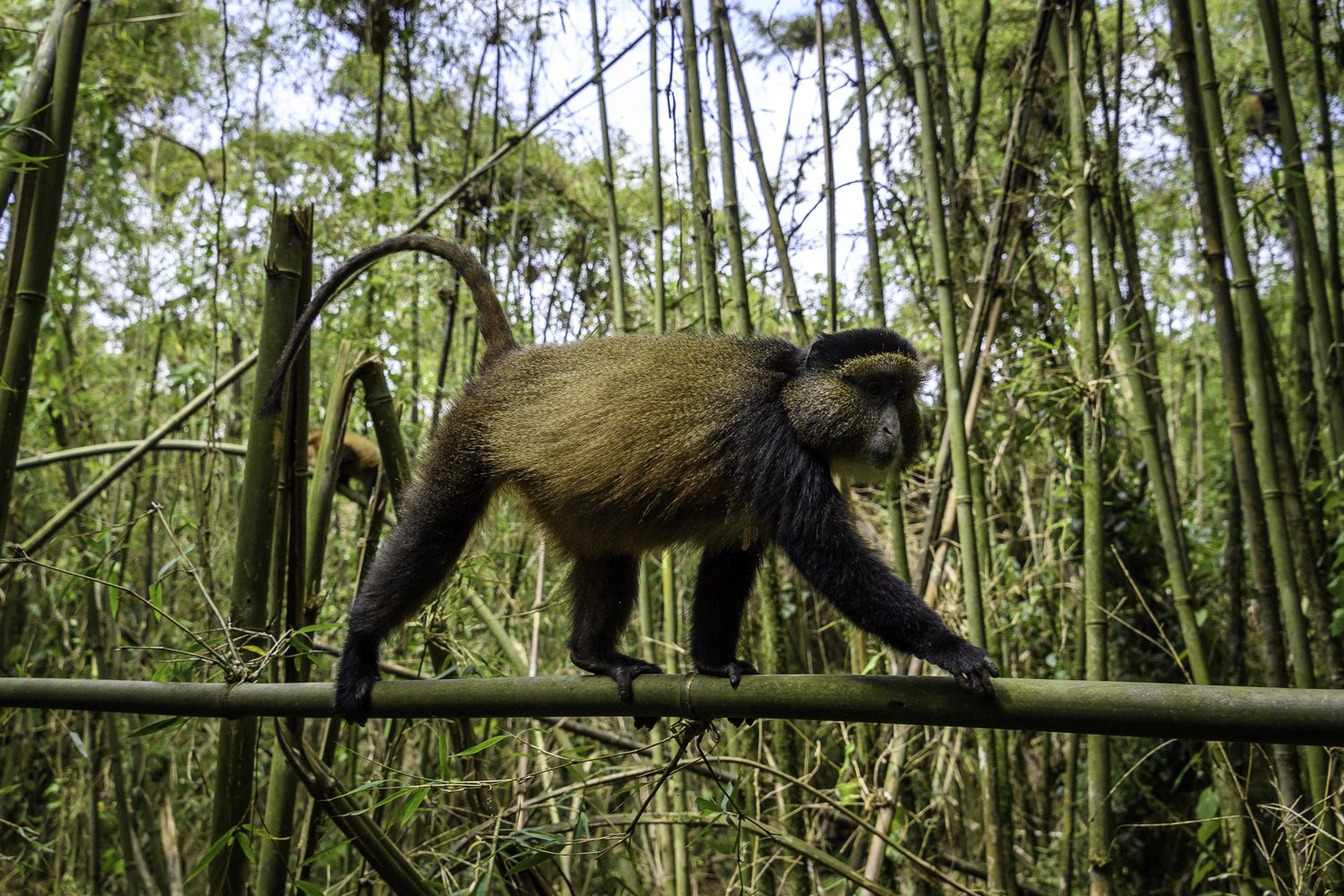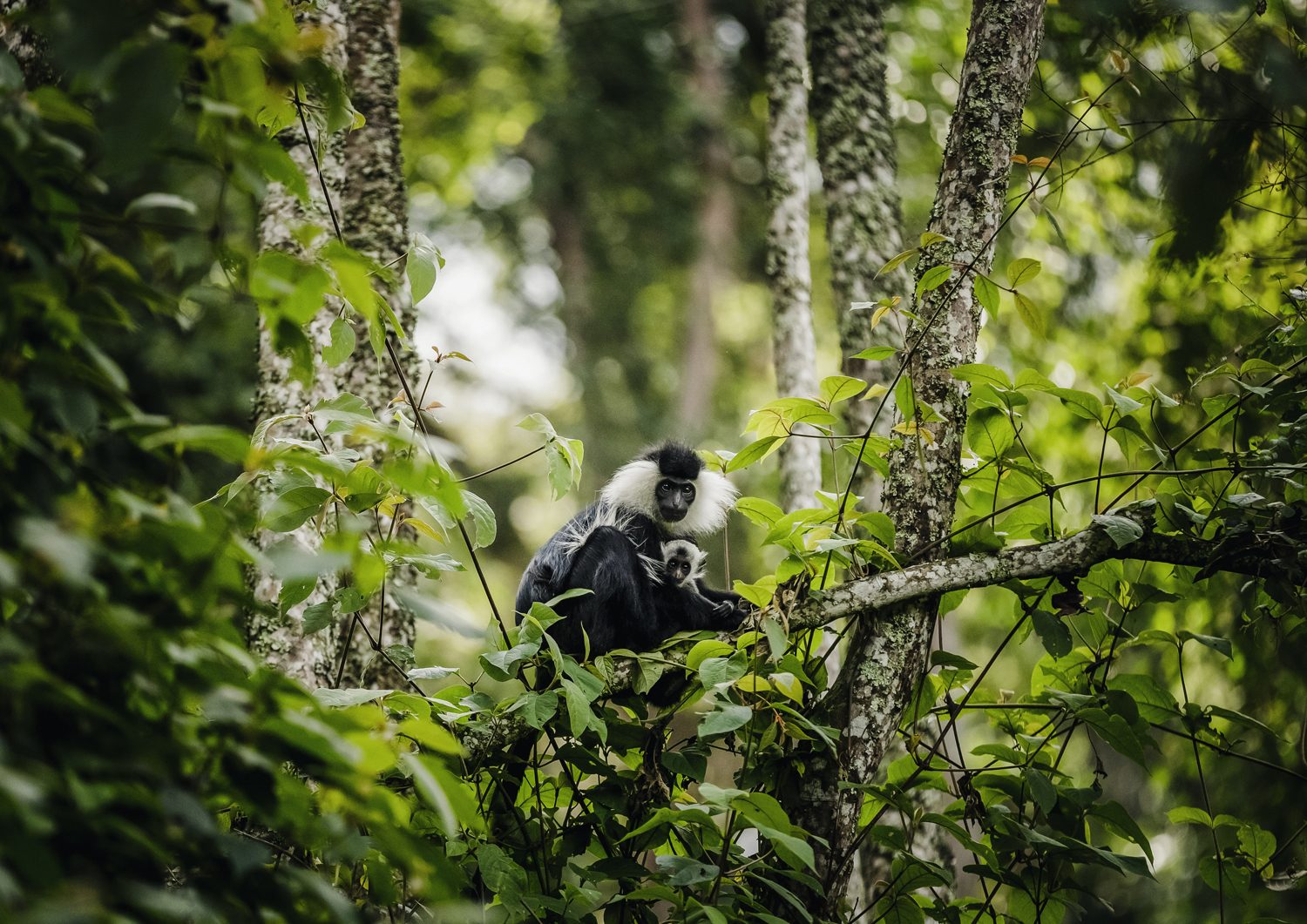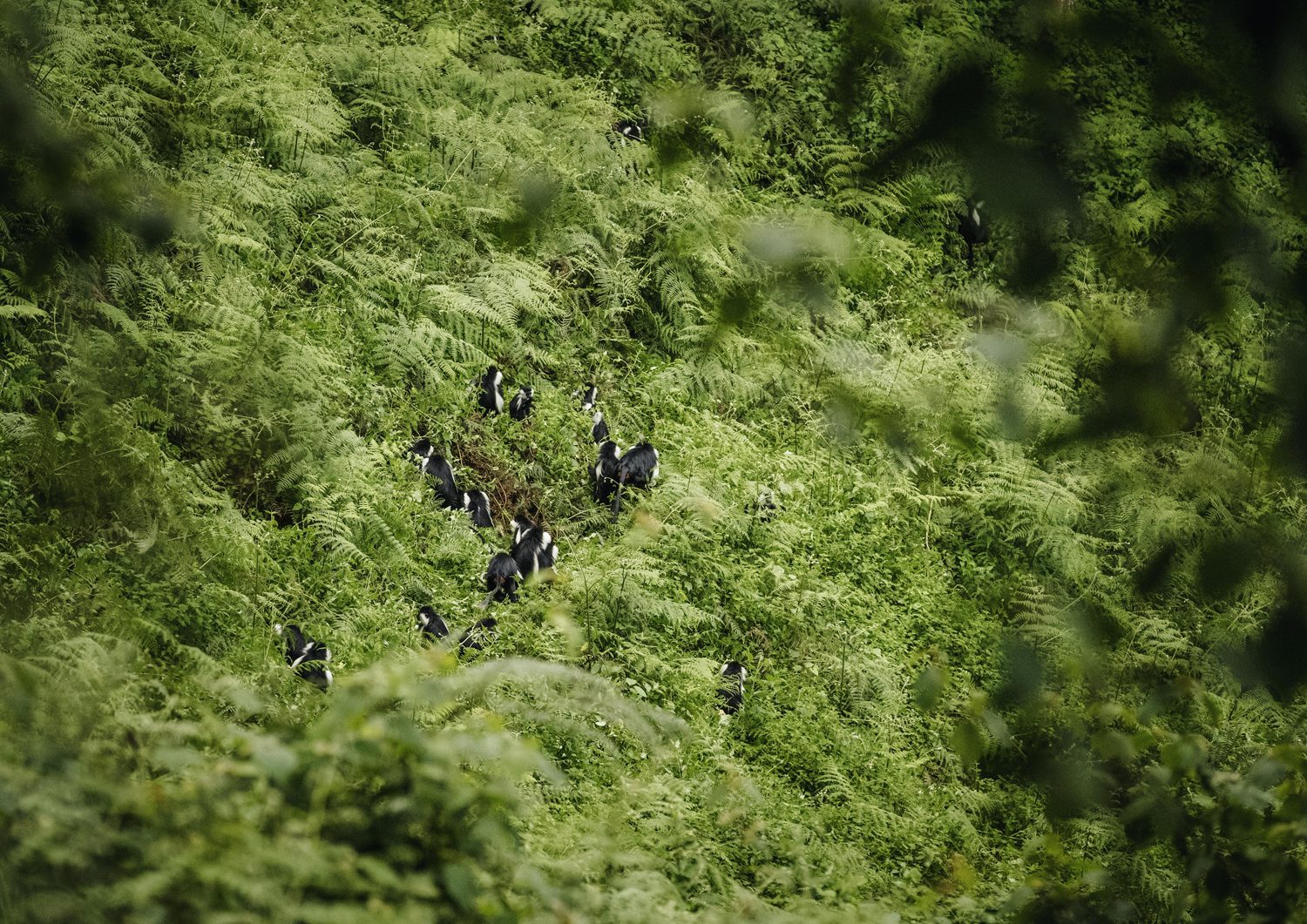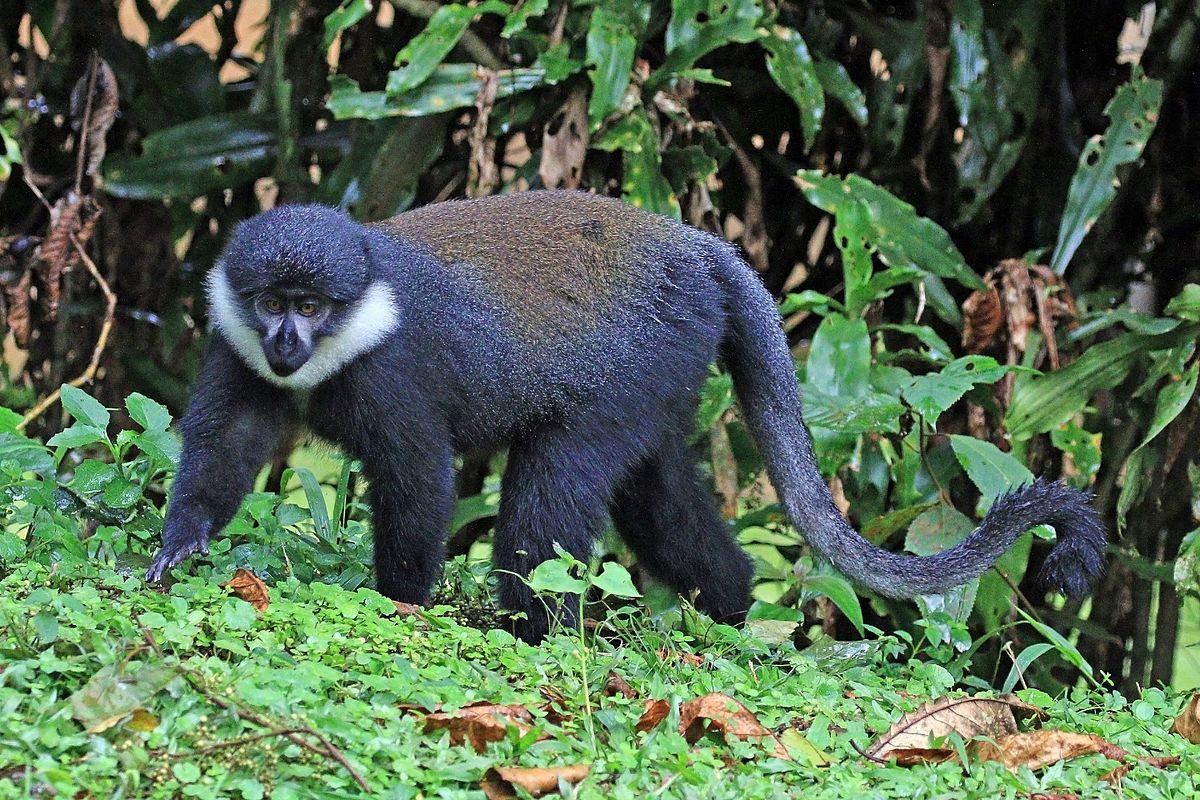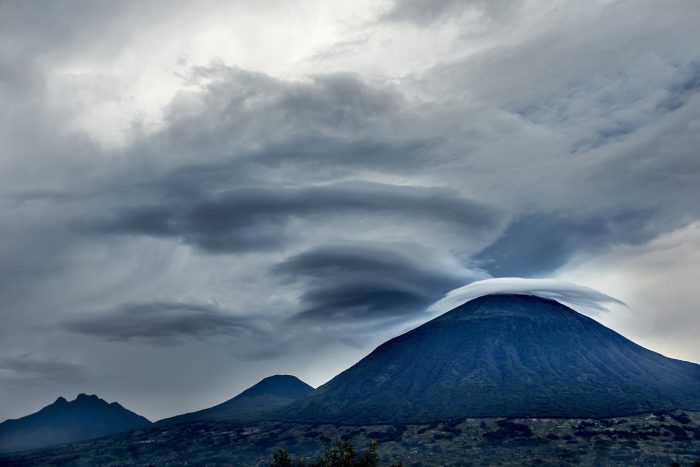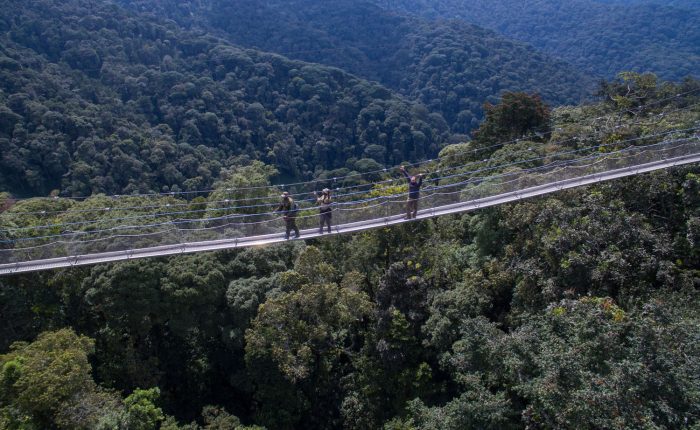Primate Tracking
Rwanda is renowned for its gorillas in the Volcanoes National Park, but the country is also home to chimpanzees as well a host of monkeys – colobus, golden, L’Hoest’s, owl faced, Dent’s, blue and vervet – alongside olive baboons as well as the nocturnal potto and bushbabies.
Chimpanzees are found in the Nyungwe National Park as well as in smaller number in the Gishwati Forest. Sociable creatures, chimpanzees live in extended communities and move around every day, foraging for food or occasionally hunting smaller mammals. They build fresh nests in the trees each night.
It is common to hear the chimpanzees before seeing them, with their vocalisations reverberating through the forest as they call to each other in a sort of bonding ritual.
Tracking starts early, at 5.30am, and can last anything from an hour to several hours depending on where the chimps are – visitors spend a maximum of one hour with them once they are found.
The terrain can be steep, slippery and muddy, passing through thick vegetation. Suitable footwear is essential, as well as a certain level of fitness. Permits can be booked online, at an RDB office or via a tour operator.
Golden monkeys are found in Volcanoes National Park as well as Gishwati Forest. In the former, there are two groups which can be tracked, one on the slopes of Mount Karisimbi and the other in the bamboo forest on Mount Sabyinyo. This is also a standalone excursion, departing from the Kinigi headquarters once each day.
Other primates are usually seen on more generalist nature trails.
Colobus monkeys form a unique supergroup in Nyungwe and are easily recognisable with their black and white colouring and long hair – a dream for wildlife photographers. Also found in Nyungwe are owl-faced monkeys with beak-like noses, Dent’s monkeys, blue monkeys and vervets.
L’Hoest’s monkeys are endemic to Albertine Rift and can be found in Nyungwe and Gishwati Forest. They have a dark coat with a white beard and live in small groups dominated by females, with a single male.
Akagera National Park is home to olive baboons and vervet monkeys, which can be spotted on safari drives. Other species can only be seen at night – the small potto, closely related to the lemurs of Madagascar, and bushbabies, with their distinctive large eyes for superior night vision, and bat-like ears to track insects in the dark.

